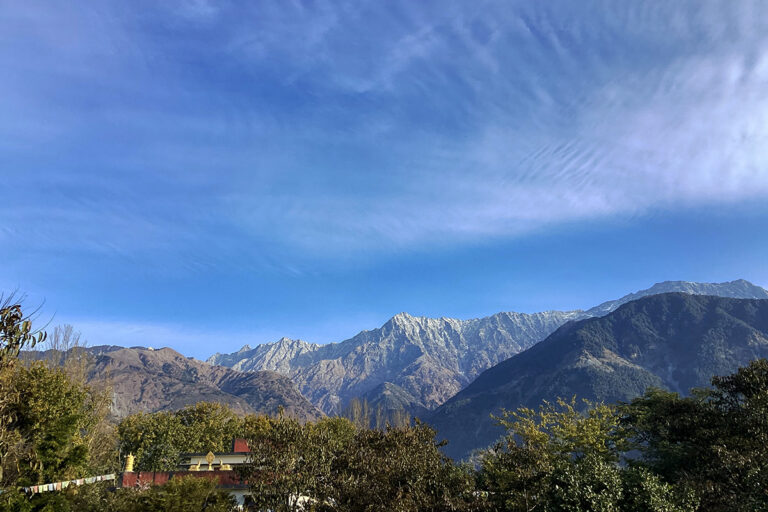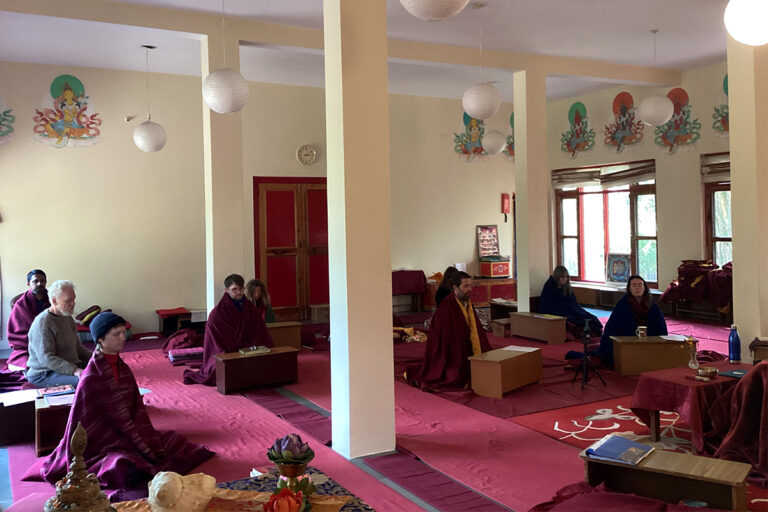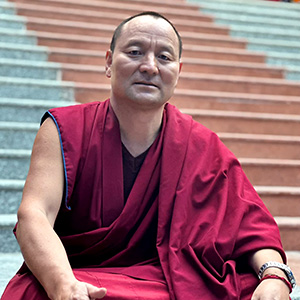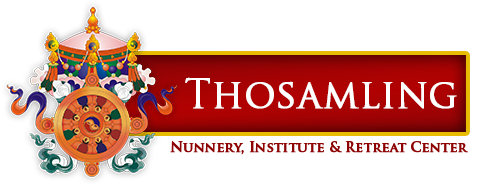The Art of Presence: Diving into Shamatha and Vipassana for Six Weeks
14th February to 31st March
with Geshe Ngawang Thekchok
WHAT WE WILL LEARN AND PRACTICE
The retreat is focused on deepening understanding and practice of meditation rooted in the Mahayana Buddhist tradition. Participants will learn Shamatha meditation, explore Buddhist traditions, and delve into the practices of the Three Vehicles.
The six-week retreat offers a comprehensive range of Shamatha and Vipashyana practices within the Tibetan Mahayana Buddhist Tradition.
It also allows for individual practice and aims to equip participants with the tools to integrate these practices into their daily lives and personal retreats. At the end, there will be self-guided practice days, suitable for all levels of practitioners.
Shamatha and Vipassana
Shamatha and Vipassana are fundamental pillars of the Tibetan Buddhist tradition, guiding practitioners towards deep insight and inner peace.
Shamatha, or “calm abiding,” trains the mind in focused attention and tranquility. Through disciplined practice, focusing on objects like the breath or a visual image, practitioners stabilize their mind, calming turbulence and enhancing concentration. It’s not about forcing the mind onto an object but allowing it to naturally rest, fostering sharper focus and mental clarity.
Vipassana, meaning “insight meditation,” complements Shamatha by encouraging profound introspection and wisdom. In Vipassana meditation, the practitioner learns to abide unwavering in their contemplation.
Practitioners keenly observe the impermanence, dissatisfaction and selflessness of phenomena, gaining clarity and liberating the mind from suffering.
Together, Shamatha and Vipassana offer a holistic approach to meditation, leading to clarity, equanimity, and spiritual awakening.
Stages of Meditation (Bhavanakrama) by Kamalashila
Master Kamalashila’s “The Stages of Meditation” is a revered text in Tibetan Buddhism, offering a clear road map for meditation practice. It outlines progressive stages, from establishing a stable foundation to cultivating profound insight; emphasizing mindfulness, concentration, and wisdom.
The three volumes of “The Stages of Meditation” delve into single-pointed concentration, concentration with special insight, and ultimately, the special insight itself, guiding practitioners on a journey of awakening and liberation.

RETREAT STRUCTURE
During the retreat, the teachings and sessions will gradually ease into the practice, allowing ample time to develop a deep understanding of the meditation technique and its underlying philosophy.
Morning sessions will be dedicated towards the practice and cultivation of meditation techniques. Participants will receive teachings and discuss the instructions in the afternoon sessions.
IMPORTANT:
We recommend to participate to the whole retreat (6 weeks)!
In case you are not able to do so, we offer a flexible option. You can join or leave the retreat after 3 weeks, that means, you can stay from February 14 to March 6, 2025, or from March 10 to 31, 2025.
If you are able to stay for the full six-week experience, you’ll continue meditating independently after the first three weeks, with the opportunity to join additional sessions.
1st Week
Introduction to Buddhism: The Four Noble Truths
The place of meditation in Buddhist practice: Essence, Purpose and Benefits
Introduction to purpose and meaning of a retreat : How to conduct oneself in a retreat and between meditation sessions
Exploration of the different types of meditative practices in Buddhism
Introduction and practice of the four foundations of mindfulness; breath meditation

2nd Week
Introduction and practice of Shamatha meditation
Exploration of the classical textual instructions and presentations on Shamatha
Practice of Shamatha meditation (with and without instructions)
Identifying the challenges in cultivating single-pointed concentration
3rd Week
Introduction and practice of Vipassana mediation
Comprehensive teaching on the sixteen aspects of the four noble truths
Discourse on emptiness and dependent arising and how they should inform the practice of Vipassana meditation
Practice of Vipassana meditation (with and without instructions)
The union of Shamatha and Vipassana in meditation: the middle stages of meditation by Kamalashila

WHO IS THE TEACHER?
Geshe Ngawang Theckchok began his formal studies in Buddhist Philosophy under esteemed masters like Venerable Lobsang Nyima and the late Venerable Namgyal Wangchen. Ordained as a full monk by His Holiness The 14th Dalai Lama in 1992 at Drepung Monastery, he later pursued and obtained the prestigious Geshe Lharampa degree in 2013.
Following his studies, Geshe Theckchok dedicated a year to studying tantra at Gyuto Tantric Monastery.
He has voluntarily taught Buddhist Philosophy at Drepung Monastery for many years and served on its Examination Board.
Geshe Thekchok has been the resident teacher at Thosamling for over five years, imparting teachings to resident nuns and foreign students on topics such as Mind Training, Stages of the Path, Dialectics, Buddhist Psychology and Shamatha and Vipassana.
Geshe Theckchok’s teachings are valued for their clarity and meticulous exploration of classical textual and doctrinal presentations.
For the course infopack and registration, send an email at [email protected]

